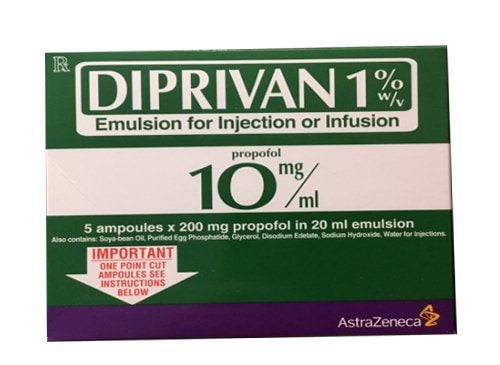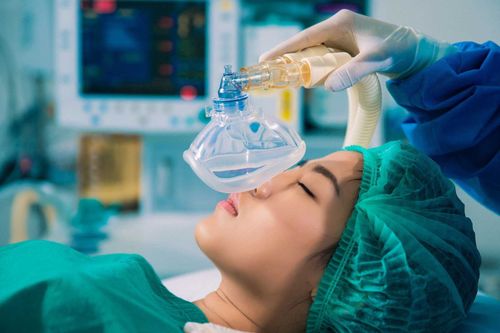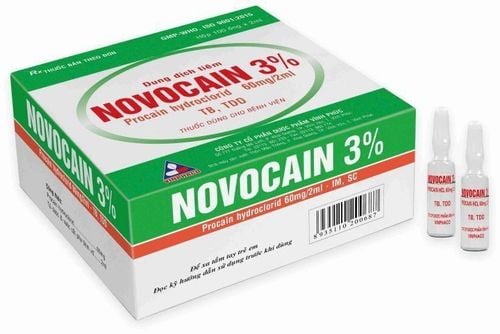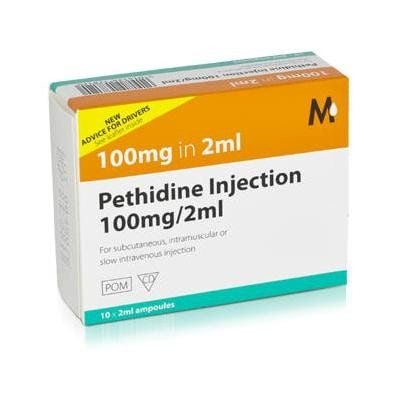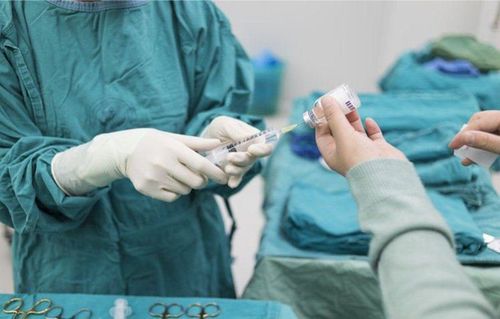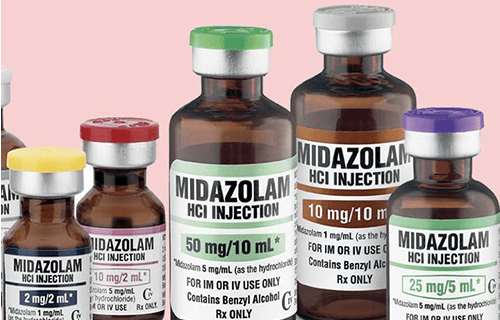This is an automatically translated article.
The article is professionally consulted by Specialist Doctor I Nguyen Duc Thong - Anesthesiologist - General Surgery Department - Vinmec Danang International General Hospital.Anesthesia for children is an important step before officially entering the surgery. Children under anesthesia will lose pain sensation, reflexes, consciousness, which makes many parents worried because they do not know how anesthesia affects their children's health?
1. What is child anesthesia?
Anesthesia for children is the process of using anesthetic to ensure that the child no longer feels pain and consciousness during surgery or performing screening techniques. There are two types of anesthetics: vapor anesthetics and intravenous anesthetics. The choice of anesthetic drug for the child will depend on the medical condition and the type of surgery and intervention techniques to be performed.Anesthesia for the child will be performed by a specialist anesthesiologist. The anesthesiologist is responsible for examining and assessing the child's body functions to make an appropriate plan of anesthesia and resuscitation, and at the same time, monitoring the child during the anesthetic process to detect and handle complications promptly. time.
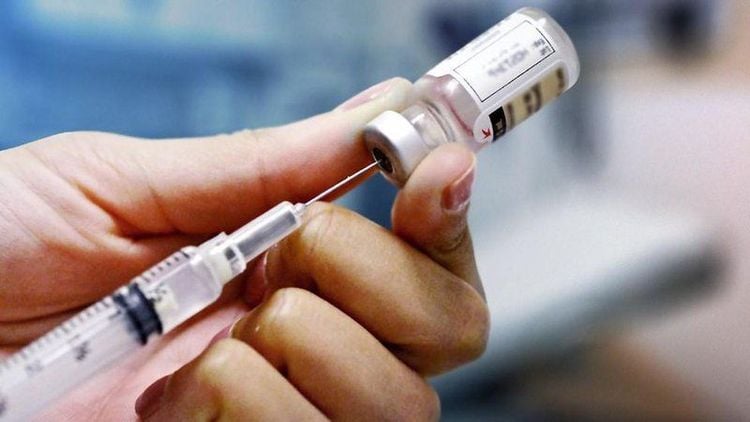
2. Is anesthesia for children safe?
The thought that the child will be in an unconscious state during anesthesia will make many parents nervous and worried. However, after anesthesia, the child will be closely monitored by doctors and modern machines, so it is very safe. The doctor will carefully monitor the breathing rate, blood pressure, blood oxygen levels, heart rate, and anesthesia to adjust the amount of anesthesia appropriate for the child.Some common side effects of anesthesia after surgery are dizziness, nausea, vomiting, headache, chills. Children can also have drug allergies. Some side effects may occur such as arrhythmia, metabolic disorder, impaired liver and kidney function, etc. However, parents do not need to worry because these cases are very rare. .

3. What is the process of anesthesia for children?
The process of anesthesia takes place according to the stages of pre-anesthesia, induction of anesthesia, maintenance of anesthesia, release of anesthesia (recovery phase) and postoperative period.Pre-anesthesia: the doctor gives the child drugs to help them relax, reduce stimulation, reduce pain, and reduce the side effects of anesthetics before the official anesthesia. The commonly used drugs are tranquilizers, antisecretory drugs, central analgesics, antihistamines,. .. Initiation and maintenance of anesthesia: the doctor gives the child an anesthetic with a dose appropriate to the child's condition. The induction dose is the dose of anesthetic used initially. Maintenance dose is a dose of anesthetic that is repeated to maintain the effect of the drug when the surgery is prolonged. During the surgery, the anesthesiologist will closely monitor the health parameters to detect and promptly handle abnormalities. Recovery phase: after surgery, the child will be transferred to the recovery area after surgery. The usual follow-up time is 2 hours, this time can be extended if the child has not met the safety criteria to leave the recovery area.
4. Note how to anesthetize children to ensure safety?
To prepare for the anesthesia, the doctor will perform a pre-anesthesia exam. The purpose of the pre-anesthesia examination is to assist the physician in a comprehensive assessment of functions and pathologies that may affect or be affected by surgical anesthesia.To ensure the safety of the child, parents should pay attention to provide the doctor with full information such as:
Is the child allergic to any drugs or food? The child's medical history as well as the family, the medications the child is taking Health problems the child is having such as flu, respiratory infection, asthma...

In order for the child to be less worried, parents should reassure the child mentally, make sure the child that parents will be right next to the operating room and be right next to when the child wakes up. This will help the child feel secure to perform anesthesia to conduct surgery.
Vinmec International General Hospital is one of the hospitals that strictly applies safe surgical anesthesia practice standards according to international guidelines. Vinmec has a team of experienced anesthesiologists and nurses, modern equipment such as: nerve detectors, ultrasound machines, Karl Storz's difficult airway control system, comprehensive anesthesia monitoring system GE's AoA (Adequate of Anesthesia) including monitoring of anesthesia, pain and muscle relaxation will provide high quality and safety, helping patients to have adequate anesthesia, not wake up, and do not have residual muscle relaxants after surgery.
Vinmec Health System is also proud to be the first hospital in Vietnam to sign with the World Anesthesiology Association (WFSA) towards the goal of becoming the safest hospital for surgical anesthesia in Southeast Asia. Therefore, parents can feel secure and confident when giving anesthesia to their children at Vinmec.
Doctor Duc Thong has 14 years of experience in the field of Anesthesia. Especially, with 12 years working at the Department of Anesthesiology and Resuscitation at C Da Nang Hospital, Dr. Thong has extensive experience in the field of Anesthesia and resuscitation for elderly patients with many comorbidities and serious illnesses. surgery; helping many heavy and complicated surgeries to be successful. Currently, he is an anesthesiologist at the Department of General Surgery - Vinmec Da Nang International General Hospital.
Please dial HOTLINE for more information or register for an appointment HERE. Download MyVinmec app to make appointments faster and to manage your bookings easily.





